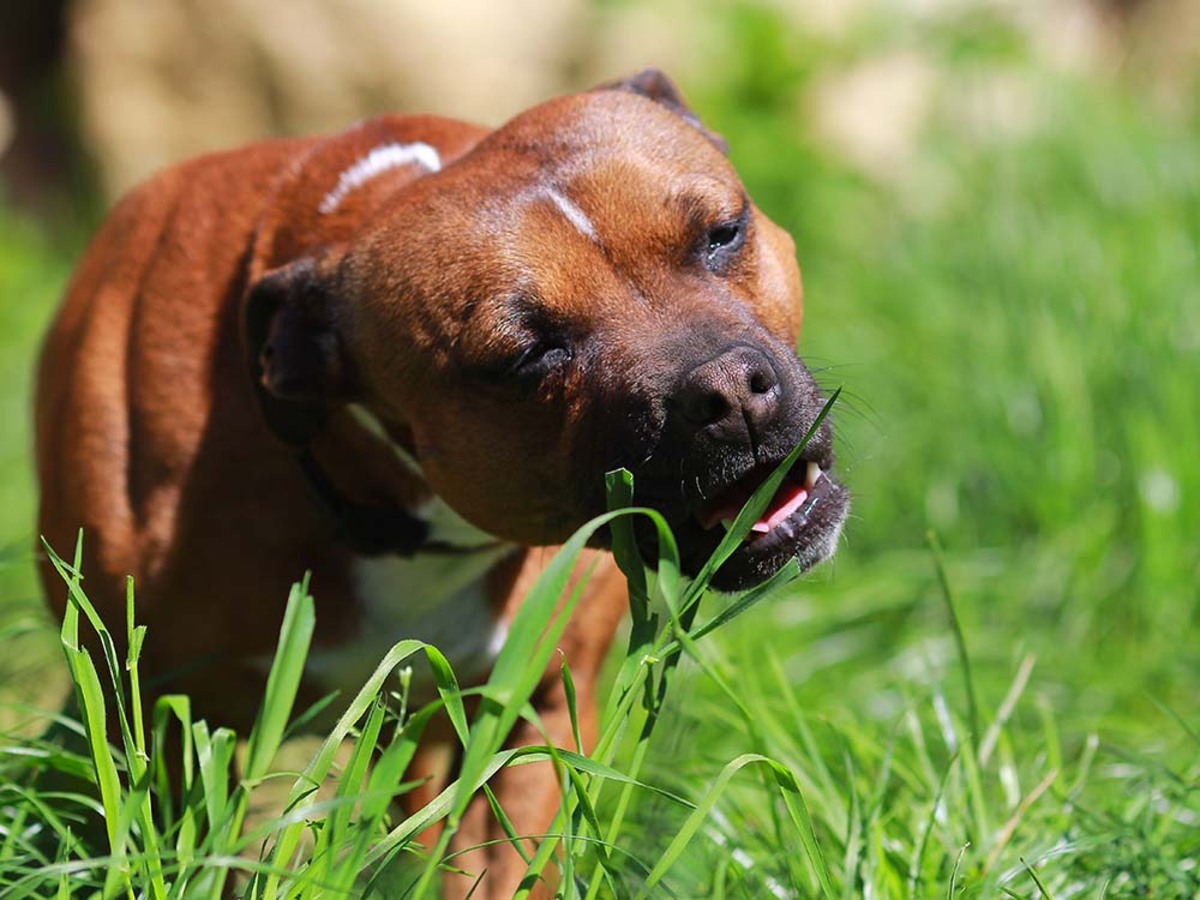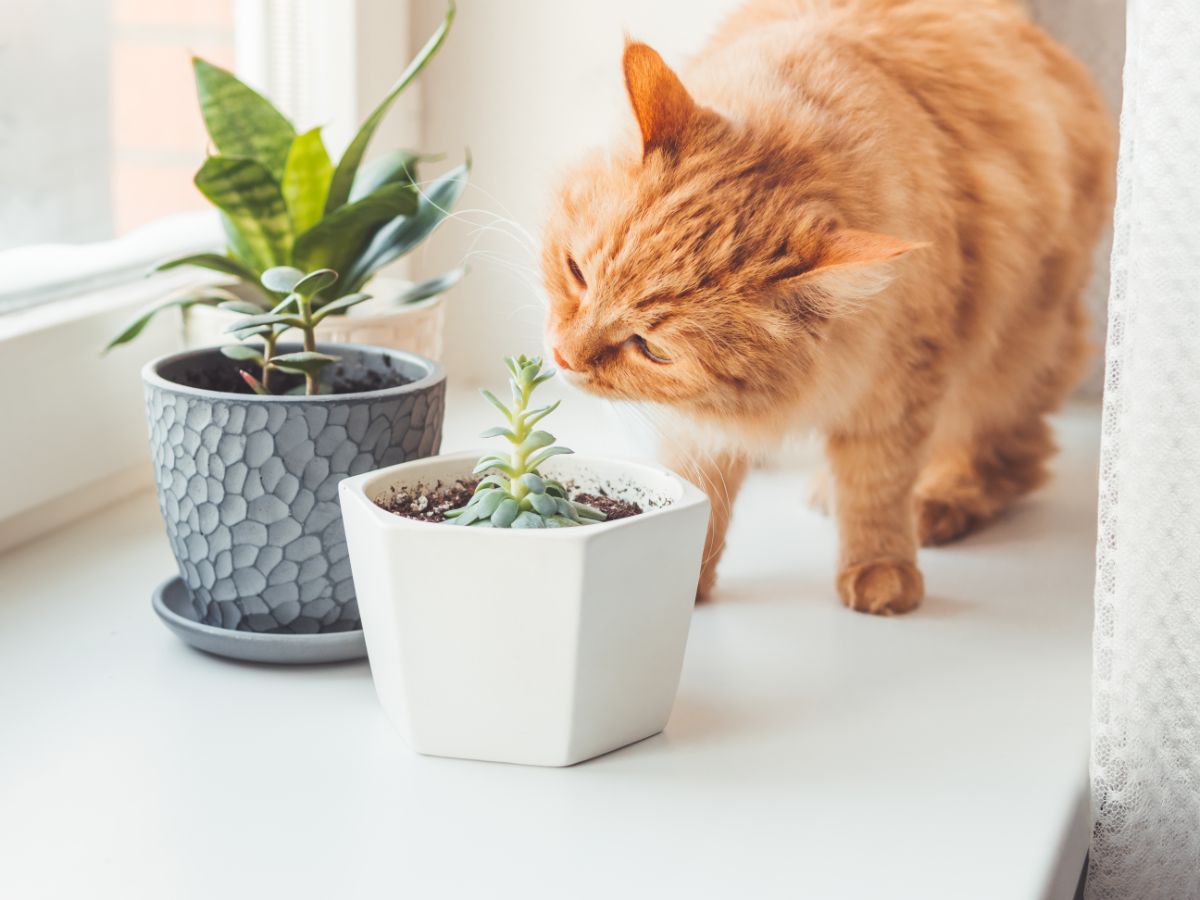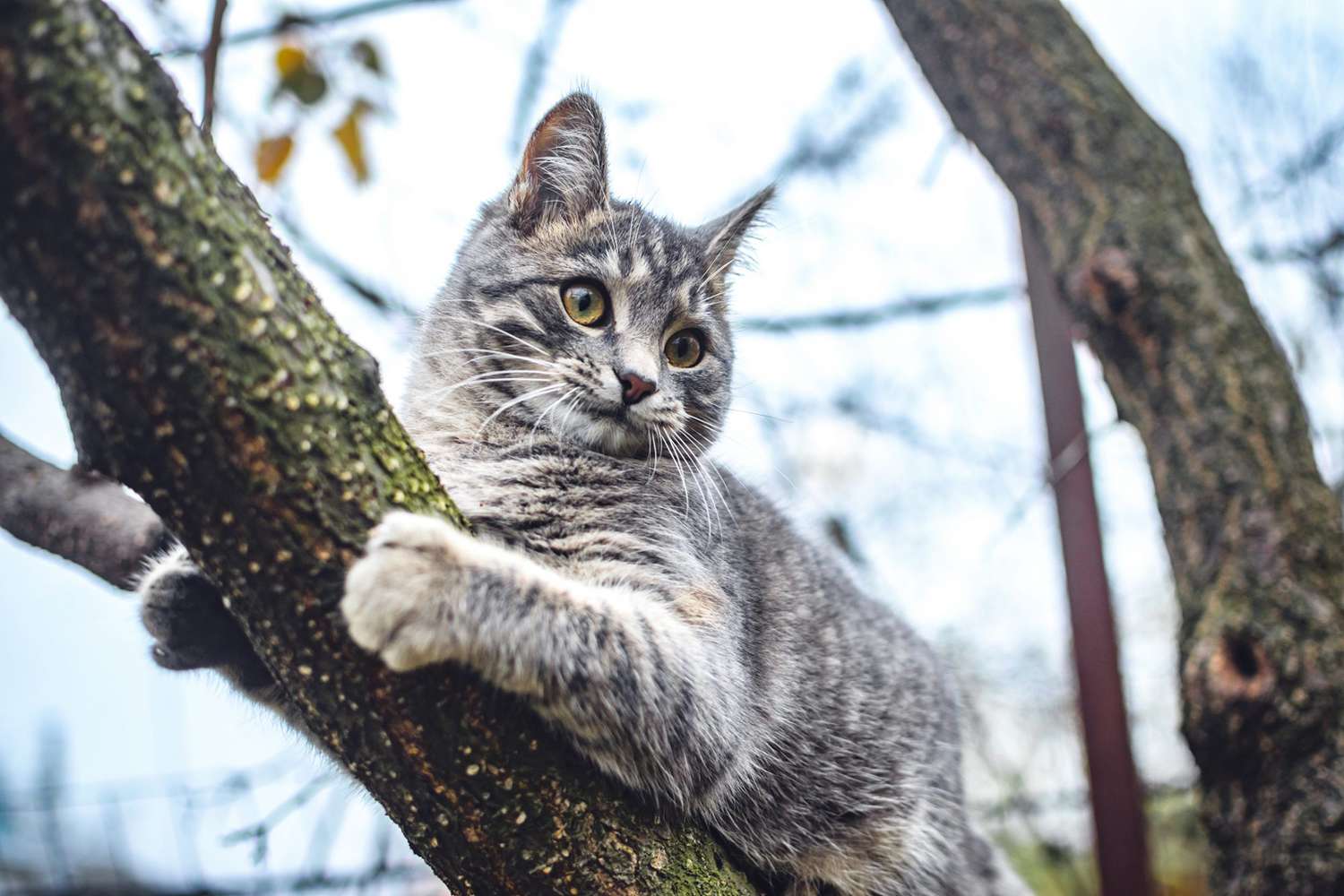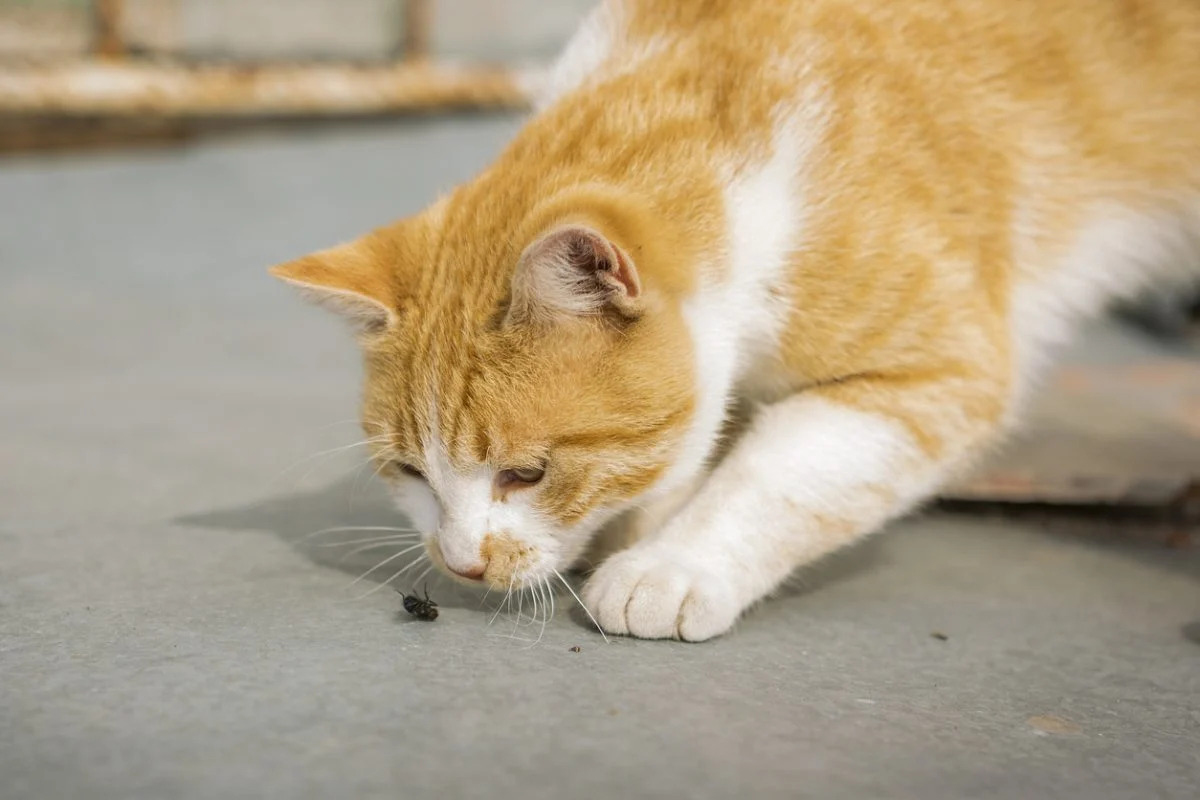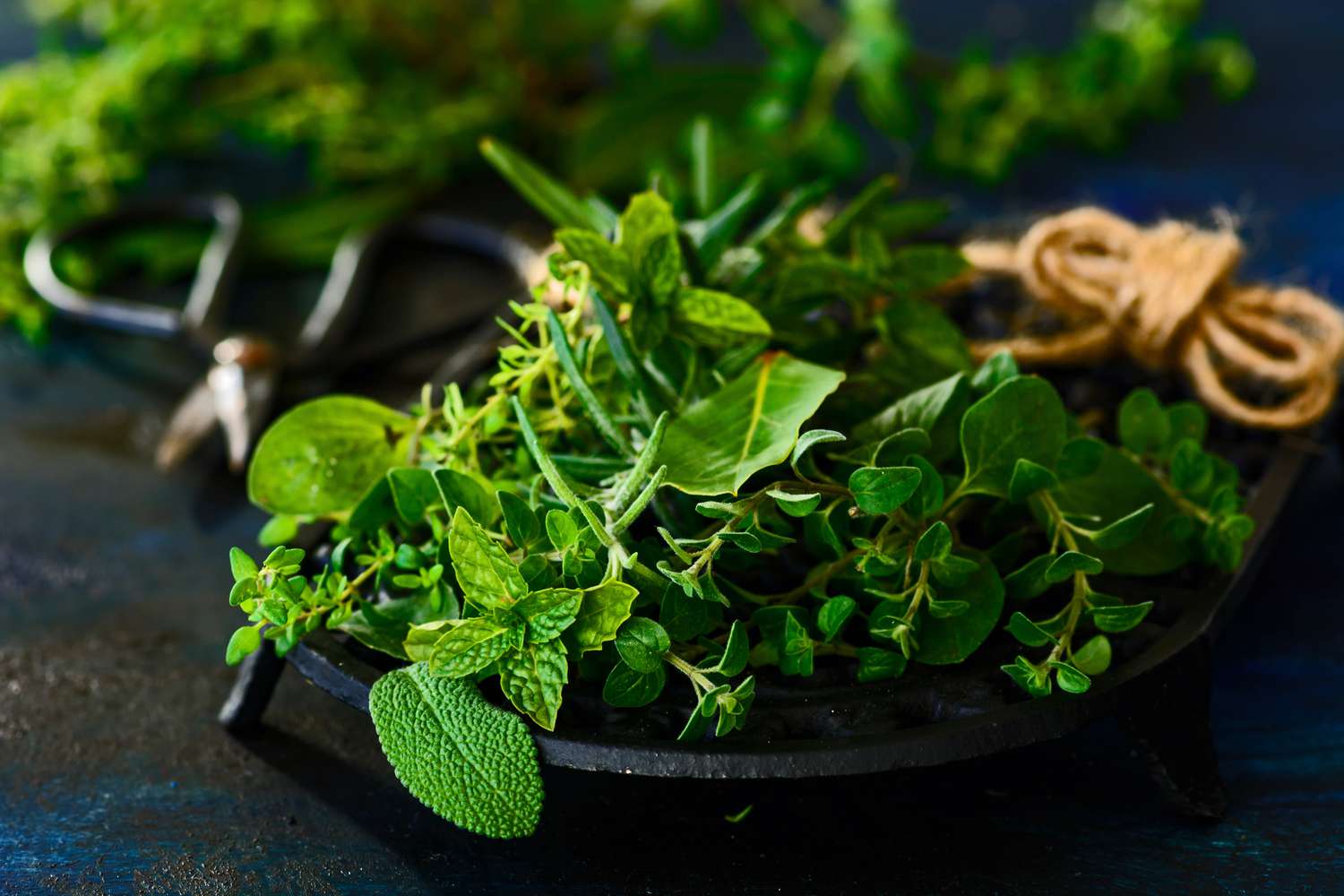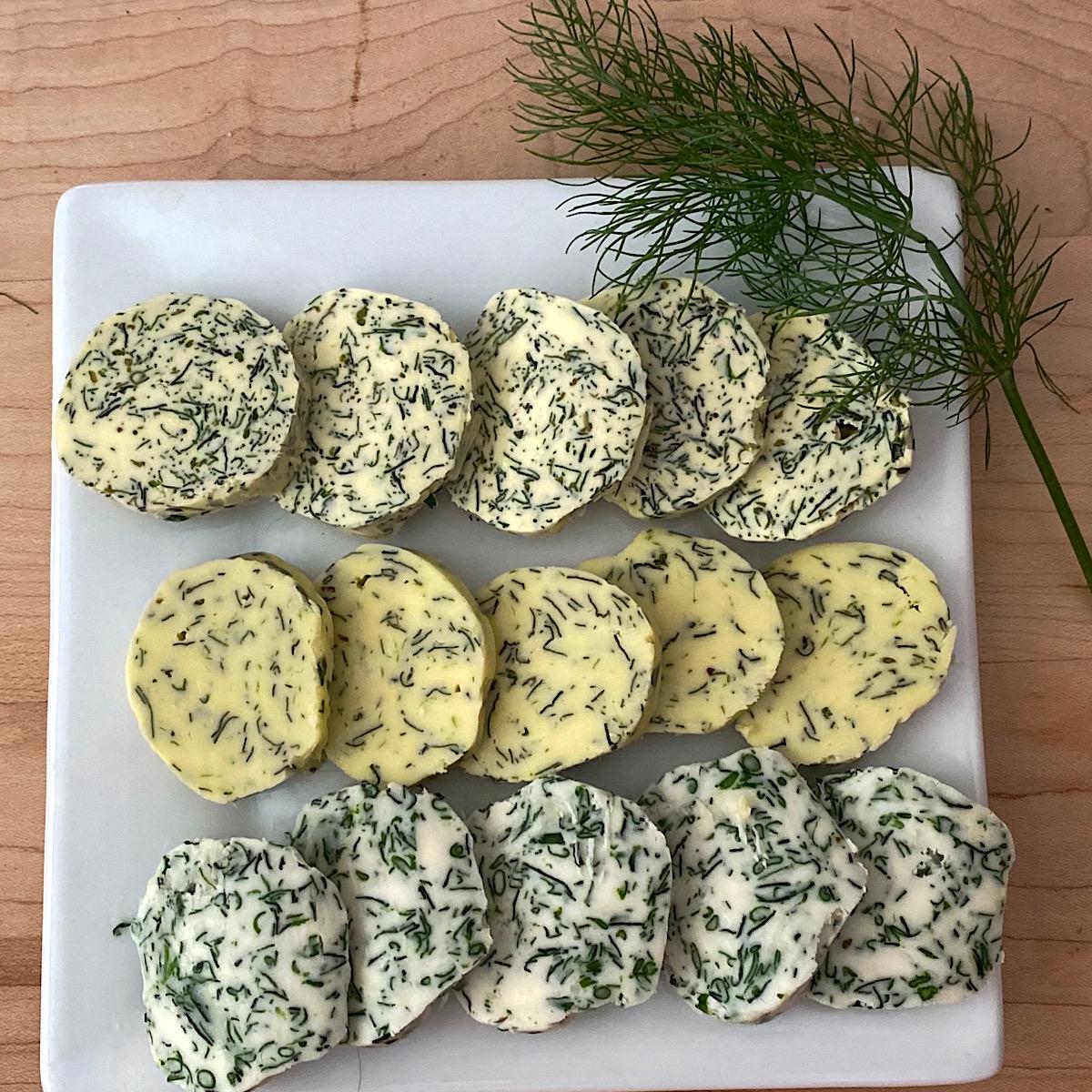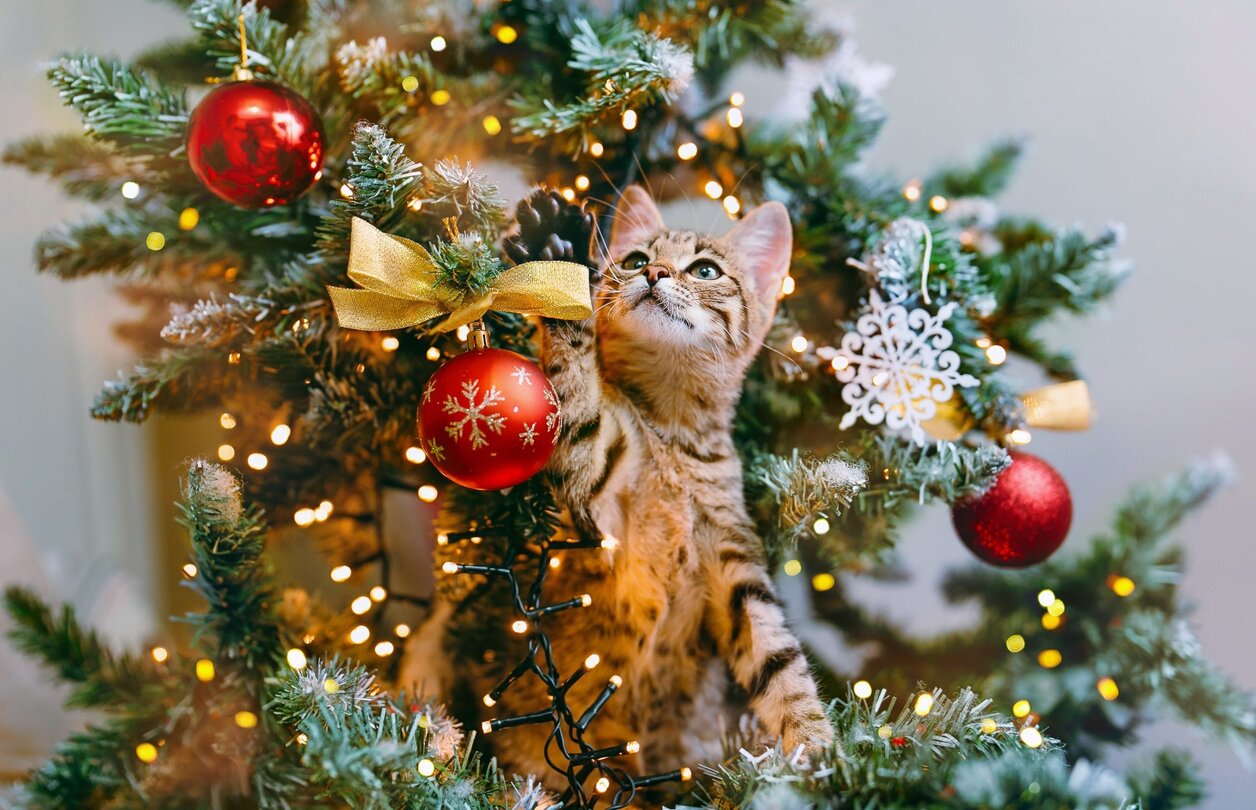Home>Gardening News and Trends>Gardening Trends>What Herbs Are Toxic To Cats
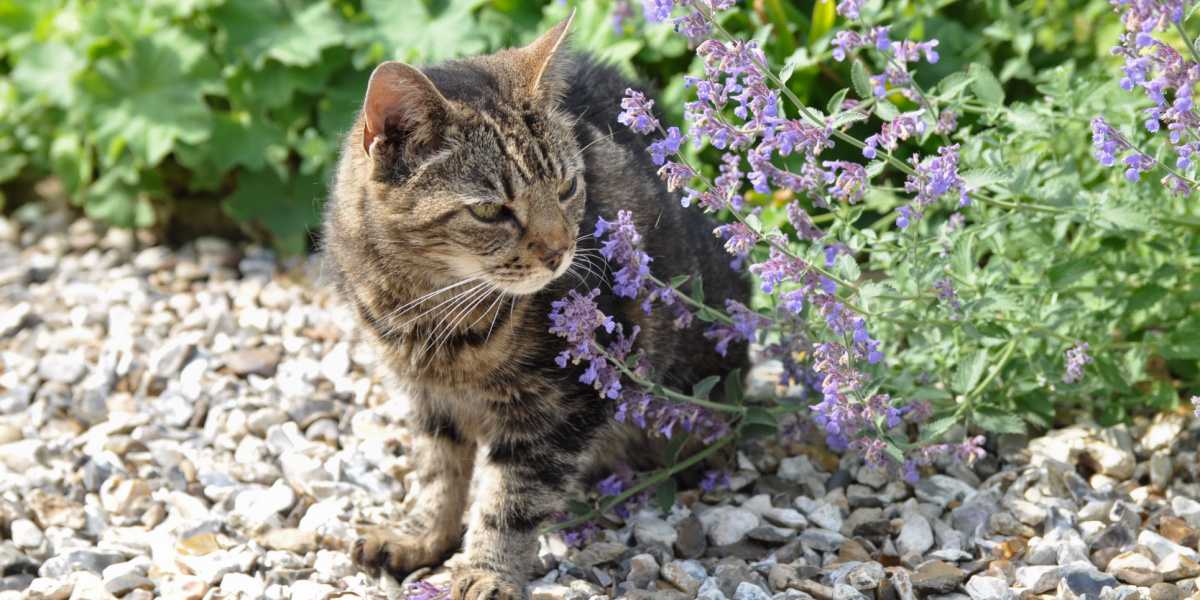

Gardening Trends
What Herbs Are Toxic To Cats
Modified: January 22, 2024
Discover the latest gardening trends and learn about what herbs can be toxic to cats. Keep your feline friend safe with our helpful guide.
(Many of the links in this article redirect to a specific reviewed product. Your purchase of these products through affiliate links helps to generate commission for Chicagolandgardening.com, at no extra cost. Learn more)
Table of Contents
Introduction
Gardening is a delightful and rewarding activity that allows us to connect with nature and beautify our surroundings. Whether you have a sprawling garden or a few potted plants, the joy of seeing your plants thrive can be unrivaled. In recent years, there has been a surge of interest in gardening, with more people channeling their creativity and energy into cultivating their own green spaces.
While gardening can be a therapeutic and enjoyable endeavor, it is important to also consider the safety of our beloved pets, especially cats. Cats are curious creatures, known for their inquisitive nature and knack for exploring every nook and cranny. As responsible pet owners and gardeners, it is crucial to be aware of the herbs that can be toxic to cats and take necessary precautions to keep them safe.
In this article, we will explore some common herbs that can be toxic to cats, identify the symptoms of herb toxicity, learn immediate steps to take if your cat ingests a toxic herb, discuss treatment options, and highlight preventive measures to ensure the well-being of your feline companion.
By understanding the potential dangers and taking proper precautions, you can create a safe and enjoyable garden environment for both you and your cat. Let’s delve into the world of gardening and how it intersects with cat safety.
Common Herbs that are Toxic to Cats
While many herbs are safe and even beneficial for cats, there are a few that can be toxic and pose a threat to their health. It is important to be aware of these toxic herbs and ensure that they are not accessible to your cat in your garden or indoor space. Here are some common herbs that can be toxic to cats:
- Lilies: Lilies are not technically herbs, but they are worth mentioning due to their high level of toxicity to cats. All parts of the lily plant, including the flower, leaves, and pollen, are toxic and can cause severe kidney damage if ingested by cats.
- Chives: Chives belong to the Allium family, which also includes onions and garlic. While small amounts of chives are unlikely to cause harm, ingestion of large amounts can lead to gastrointestinal upset, anemia, and even organ damage in cats.
- Parsley: Parsley is often used as a garnish or in small quantities in cooking, but large amounts can be harmful to cats. It contains a substance called furanocoumarin, which can cause photosensitivity, liver damage, and even skin ulceration in cats.
- Calendula: Calendula, also known as marigold, is a popular herb in gardens for its vibrant colors. However, it can be toxic to cats if ingested in large quantities. Symptoms of calendula toxicity may include vomiting, diarrhea, and skin irritation.
- Mint: While mint is generally safe for cats, certain types of mint, such as pennyroyal, can be toxic. Pennyroyal contains a compound called pulegone, which can cause liver damage and other serious health issues in cats if consumed in large amounts.
It is important to note that this list is not exhaustive, and there may be other herbs that can be toxic to cats. When in doubt, it is always best to consult with a veterinarian or do thorough research before introducing new herbs into your garden or allowing your cat access to them.
Symptoms of Herb Toxicity in Cats
Recognizing the symptoms of herb toxicity in cats is crucial for identifying if your feline friend has ingested a toxic herb. The signs can vary depending on the herb involved and the severity of the ingestion. It is important to monitor your cat closely for any unusual behavior or symptoms. Here are some common symptoms of herb toxicity in cats:
- Gastrointestinal Distress: Cats may experience vomiting, diarrhea, or a decrease in appetite after ingesting a toxic herb. These symptoms can range from mild to severe and may persist for several hours or days.
- Respiratory Issues: Some herbs can cause respiratory problems in cats. If your cat starts wheezing, coughing, or showing signs of difficulty breathing after coming into contact with a toxic herb, it could be an indication of herb toxicity.
- Neurological Symptoms: Certain herbs can affect the nervous system of cats, leading to symptoms such as tremors, seizures, disorientation, or even paralysis. If you notice any abnormal behavior or signs of neurological distress, seek veterinary attention immediately.
- Increased Heart Rate: Ingestion of certain toxic herbs can cause an increase in heart rate in cats. You may notice your cat’s heart beating faster than usual or an increase in restlessness or anxiety.
- Skin Irritation: Some herbs can cause skin irritation or allergic reactions in cats. This may manifest as redness, itchiness, rashes, or swelling of the affected areas. Keep an eye out for any signs of skin irritation after your cat has been in contact with a potentially toxic herb.
It is important to remember that these symptoms can also be caused by other health issues, so it is crucial to consult a veterinarian for an accurate diagnosis if you suspect herb toxicity. Veterinarians will be able to perform tests, assess the symptoms, and provide appropriate treatment for your cat.
Immediate Steps to Take if Your Cat Ingests a Toxic Herb
Discovering that your cat has ingested a toxic herb can be a distressing situation. It is important to take immediate action to minimize the potential harm. Here are some steps to consider if your cat ingests a toxic herb:
- Stay Calm: While it can be alarming to see your cat ingest something toxic, try to stay calm to make rational decisions and provide the necessary care for your cat.
- Identify the Herb: If possible, try to identify the toxic herb that your cat has ingested. This information will be helpful for the veterinarian to determine the appropriate treatment.
- Contact a Veterinarian: Immediately contact a veterinarian or a pet poison helpline for guidance. They will provide you with specific instructions based on the herb ingested and your cat’s condition. It is important not to induce vomiting or administer any home remedies without professional guidance, as some actions may worsen the situation.
- Observe and Monitor: Keep a close eye on your cat’s behavior and symptoms. Note any changes or new symptoms that develop. This information will be useful for the veterinarian during the diagnosis and treatment process.
- Collect Samples: If possible, collect samples or remnants of the herb that your cat ingested. This can be helpful for identification and analysis purposes.
- Prevent Further Ingestion: In the meantime, confine your cat to a safe and designated area where they cannot access any other potentially toxic plants or substances. This will minimize the risk of further ingestion and potential complications.
Remember, time is of the essence in such situations. Seek veterinary assistance promptly to ensure the well-being of your cat. The veterinarian will guide you through the next steps, which may include bringing your cat in for an examination or providing further instructions for at-home care.
Treatment for Herb Toxicity in Cats
When it comes to treating herb toxicity in cats, it is essential to seek professional veterinary help as soon as possible. The specific treatment and approach will depend on the type of herb ingested, the severity of the toxicity, and the symptoms exhibited by your cat. Here are some general treatment options for herb toxicity in cats:
- Inducing Vomiting: In some cases, if the ingestion has occurred within the past couple of hours, the veterinarian may induce vomiting to remove the toxic substance from the cat’s system. However, it is important not to induce vomiting without veterinary guidance, as it may not be suitable for every situation.
- Administration of Activated Charcoal: Activated charcoal may be administered to help absorb any remaining toxins in the cat’s digestive system. This can help prevent further absorption into the bloodstream.
- Symptomatic Treatment: The veterinarian may provide supportive care to alleviate the symptoms exhibited by your cat. This can include medications to address gastrointestinal distress, respiratory issues, or neurological symptoms.
- Fluid Therapy: If your cat experiences dehydration due to vomiting or diarrhea, the veterinarian may administer fluids to restore hydration and maintain the cat’s electrolyte balance.
- Monitoring and Hospitalization: Depending on the severity of the toxicity, your cat may need to be hospitalized for close monitoring and further treatment. This is common in cases where there is a risk of organ damage or severe reactions.
- Follow-up Care: After treating herb toxicity, the veterinarian may recommend follow-up appointments to assess your cat’s progress and ensure their full recovery. They may also provide guidance on home care and potential dietary adjustments to facilitate healing.
It is crucial to follow the veterinarian’s instructions carefully and provide a calm and stress-free environment for your cat during their recovery. With prompt and appropriate treatment, many cats recover fully from herb toxicity. However, the prognosis may vary depending on the herb involved, the amount ingested, and your cat’s individual health condition.
Preventing Herb Toxicity in Cats
Prevention is key when it comes to protecting your cat from herb toxicity. By taking proactive measures, you can create a safe environment for your feline friend. Here are some steps you can take to prevent herb toxicity in cats:
- Research and Education: Before introducing any new plants or herbs to your garden or indoor space, research their toxicity levels for cats. Familiarize yourself with the herbs that are known to be toxic and avoid planting them altogether.
- Secure and Supervise Your Garden: If you have an outdoor garden, create a designated area that is cat-friendly and free from toxic plants or herbs. Use barriers or fencing to restrict your cat’s access to potentially harmful areas. Additionally, supervise your cat when they are in the garden to prevent them from nibbling on plants.
- Choose Cat-Safe Plants: Opt for cat-safe plants and herbs in your garden. There are many feline-friendly options, such as catnip, cat grass, and certain varieties of mint. These plants not only provide your cat with safe options for exploration but also offer enrichment and sensory stimulation.
- Indoor Herb Safety: If you grow herbs indoors, make sure they are placed out of your cat’s reach. Consider using hanging planters or placing the herbs on high shelves to prevent easy access by your curious feline friend.
- Supervise Indoor Play: Keep an eye on your cat during playtime, especially if you have potted herbs or plants indoors. Cats are agile jumpers, and they may attempt to reach and nibble on plants placed on furniture or windowsills if left unsupervised.
- Avoid Chemical Use: Be cautious when using pesticides, herbicides, or fertilizers in your garden. These chemicals can be toxic to cats if ingested. Opt for cat-safe alternatives or natural pest control methods to maintain a healthy environment for both your plants and your cat.
- Promote Behavioral Deterrents: If your cat shows a particular interest in your herbs or plants, consider using deterrents such as citrus scents, sticky surfaces, or bitter sprays. These can help discourage your cat from investigating or nibbling on the plants.
- Regular Veterinary Check-ups: Schedule regular check-ups with your veterinarian to ensure your cat’s overall health and well-being. Regular examinations allow your veterinarian to identify any potential health concerns or risks early on.
By implementing these preventive measures, you can create an environment that is both enriching and safe for your cat. It is important to remember that even with precautions, accidents can still happen, so being vigilant and proactive is essential in protecting your feline companion.
Conclusion
Gardening is a delightful and fulfilling hobby, but it’s crucial to be mindful of the potential hazards to our beloved feline friends. Being aware of the herbs that are toxic to cats and taking steps to prevent their exposure can go a long way in ensuring their safety and well-being.
In this article, we explored common herbs that can be toxic to cats, the symptoms of herb toxicity, immediate steps to take if your cat ingests a toxic herb, treatment options, and preventive measures. Remember, if you suspect your cat has ingested a toxic herb, it’s vital to consult a veterinarian immediately for guidance and appropriate treatment.
By conducting research, choosing cat-safe plants, creating secure garden spaces, and supervising your cat’s playtime, you can significantly reduce the risk of herb toxicity. Maintaining open communication with your veterinarian and scheduling regular check-ups will also ensure that your cat receives proper care and preventive measures specific to their needs.
As responsible pet owners and gardeners, our priority is to create a harmonious environment where our cats can thrive without endangering their health. With the right knowledge and proactive steps, you can enjoy the beauty of gardening while keeping your feline companion safe from harmful herbs.
